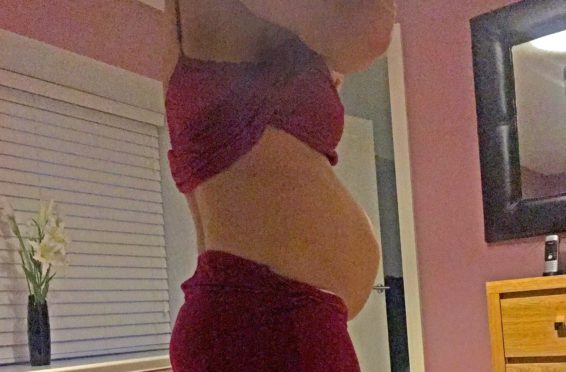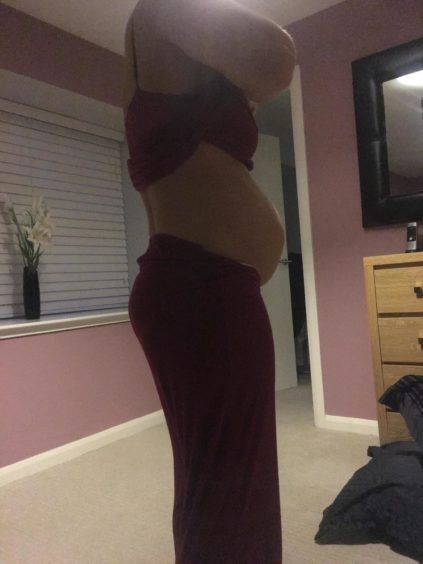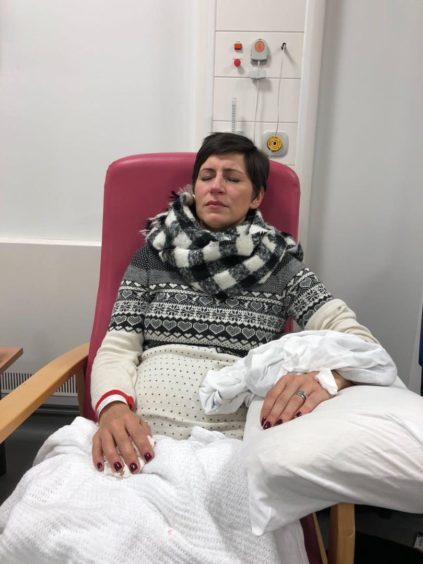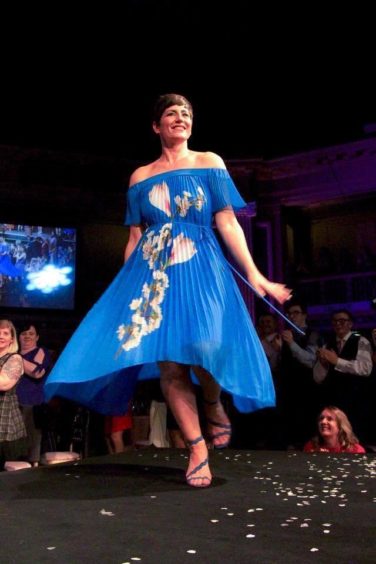A woman diagnosed with bowel cancer after undergoing emergency surgery says she now feels “incredible” after being given the all-clear.
Marianne Stenhouse suffered from bowel problems for at least a decade, experiencing severe cramps and even bloating that made her look heavily pregnant.
Her condition gradually worsened. But it wasn’t until the mum-of-two underwent emergency surgery in July 2017 that her cancer was discovered.
The 39-year-old spent years struggling with what she believed to be IBS until she noticed a change in her symptoms.
She said: “For as long as I can remember as an adult, I had to find ways to manage a mixture of constipation and diarrhoea. I suffered from severe bloating and stomach cramps and always had a heavy, lethargic feeling.
“It didn’t stop me from doing things. I guess I had come to accept that this was my baseline ‘normal’ feeling and I figured that I had to get on with it.
“I was on medication for years to manage my bowel movements and the pain associated with IBS. And I followed various diets and elimination plans to figure out what triggered my symptoms.
“It’s hard to know if and when this changed into something more worrying. My cancer was discovered during emergency surgery to repair my perforated bowel. It was stage 3.”
By April 2017, Marianne, of Stonehaven, noticed a change in her symptoms that meant she could no longer carry out day-to-day activities, such as driving.
The teacher added: “In April of 2017, I noticed a change in my symptoms. There was mucus in my stools, and sometimes blood.
“The stomach pain was much worse. I had started to look heavily pregnant and was back and forth to the GP on a more regular basis for pain medication.
“I remember even begging to be referred for alternative therapies because nothing conventional was helping and I was just given more and more laxatives and antispasmodics.
“At one point I even asked if it was possible that this was a mental health issue – was it possible that I had been imagining this the whole time and needed a different sort of help.
“In July that year, on holiday, we got word that my husband Roy’s friend had tragically died from bowel cancer.
“The day after flying home, we made our way to Newcastle for the funeral. I didn’t make it out of the hotel room. I lay on the bathroom floor for almost the whole stay.
“The next day, we drove home and Roy took me straight to the GP surgery.”
The following day Marianne collapsed and she was taken to Aberdeen Royal Infirmary where she spent several weeks.
The mum-of-two said: “My stomach was so distended that I couldn’t even walk to the toilet. I couldn’t eat or sleep.”
She then underwent emergency surgery after being diagnosed with a perforated bowel.
Marianne said: “It was particularly scary because my dad died a few years earlier from an undiagnosed bowel perforation.”
Before the operation, Marianne said doctors warned her there was a chance she could wake up with a stoma bag.
“I honestly didn’t care, I was literally lying on the hospital floor crying for help at this point,” she added.
“When I woke up in recovery, I was told that the surgeons had found something.
I knew straight away what they meant, but for the next two weeks I became so unwell in the hospital that the possible diagnosis of cancer wasn’t the focus.
“It wasn’t until I had been home for a week that the results came in. They confirmed that I had stage 3 cancer, but they were confident that they had removed it all.
“I was to complete four rounds of chemotherapy to ensure nothing was missed.
“The Anchor Unit at Aberdeen Royal Infirmary and Friends of Anchor made everything so much more bearable. It’s weird to say it but I actually looked forward to chemo sessions because the experience is made so much better by all that they do.
“Being ‘in the system’ is quite reassuring. There is always someone there to tell you where to go, what to do next, and there are so supportive. Finishing treatment is the scarier part – the unknown is scary.
“My friends and family have been the best. They rallied round me and supported me in every way imaginable. They accompanied me to chemo, went for walks, visited, babysat, took me out, stayed in, and even threw parties.”
I thought I was fine before but hearing them say that they don’t need to see me again was amazing.”
After the operation, Marianne started writing a blog to keep friends and family up-to-date with her journey. But she also wanted to help beat the stigma attached to bowel cancer – and her experiences are continuing to inspire people across the world.

And she was given the official all-clear from cancer two weeks ago and says she felt “incredible” after receiving the news. The mum has also returned to teaching.
“I can’t explain how light I feel now,” Marianne said. “I thought I was fine before but hearing them say that they don’t need to see me again was amazing.
“My family has been through a lot and it’s a huge relief for them too. We are all very close and it’s been amazing to tell them that they don’t need to worry anymore.
“But it very quickly turned into something much bigger and I have now found myself in touch with people all around the world.
“People get in touch for themselves, friends and relatives. They ask for advice, share their experiences and sometimes just send me nice messages of support.
“I think it is really important to share these stories to reduce the stigma attached to bowel cancer.
“Some people think it’s a dirty disease or something to be ashamed of. I am not embarrassed. I don’t even mind talking about my stoma bag, it saved my life.
“We need to make the conversation more open. People shouldn’t be frightened to talk about these issues as it’s perfectly normal – until it isn’t!
“The number of younger people being diagnosed seems to be rising too. This is why it is so important to be aware of your bowel habits and educate people on what is healthy and what is concerning.”
Marianne’s blog can be found by visiting Me and My Stoma on Facebook.



